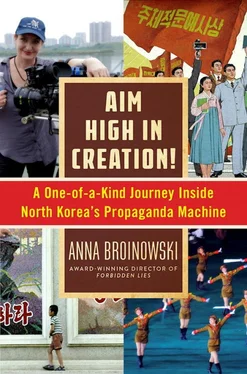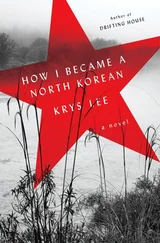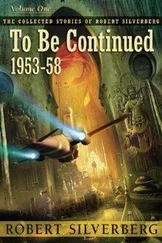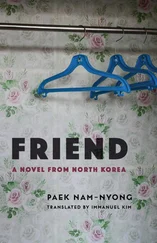She hustles me from bank to bank, peering over my shoulder to count the notes, demanding each time that I hand them to her. She’s upbeat in the face of my obvious discomfort, as if there’s nothing rude about her behaviour. This is apparently how South Koreans do business. I wonder if the bullishness is something they’ve had to learn during their ascent to global powerhouse. Or if it’s a national trait, shared by their communist cousins in the north. “Give me ten thousand more, for the calls I made yesterday,” says Monica, staring me down in the biting wind. She’s not going to unlock the car door until I do. I suddenly understand why the Koreans are said to be the only people the Japanese really fear. And then Monica’s all smiles again as she pockets the cash and delivers me to the studio of Chung Sun Min, secretary-general of the Shin Sang Ok Memorial Project.
Chung is imperious, expensively dressed, and wearing socks. As is customary, we’ve left our shoes at the door. The space is magnificent, filled floor to ceiling with Shin Sang Ok’s film canisters, cameras, instruments, and props. I want to film it in a wide, but Chung won’t talk until I cut off the frame at his knees. His socks may be argyle, but they do not convey the gravitas he’s going for as Shin Sang Ok’s executor. Chung has never heard of Kim Jong Il’s manifesto. But he knows all about his ambition. Thanks to the Dear Leader’s desire for cinematic glory, Chung’s best friend, Shin Sang Ok, and his wife, Choi Eun Hee, spent five years in the North Korean gulags.
Chung tells their story: “Choi was a top South Korean movie star in the ’70s, but her career was on the wane. While relocating her new film school in 1978, she got an invitation from Wang Dong Il in Hong Kong—who promised to invest in the school and get her movie work. This was a trap set by North Korea. At the time, Choi was divorcing her husband, Shin Sang Ok. But they were still in contact, and he opposed her going to Hong Kong. She went anyway, and that’s how she was abducted. In January 1978, Kim Jong Il came to Nampo port in North Korea to greet Choi in person. Then he sent her to prison. She didn’t see him for another five years.
“Kim Jong Il knew Shin would try to find Choi. He did, and was interrogated by the South Korean secret police, who suspected he was involved in her kidnapping. This meant he could no longer make movies in South Korea. When Shin received an offer to export fifteen of his films to Hong Kong, he took it, because he was broke. He went to Hong Kong to set up the deal, but it took too long and his visa was in danger of expiring. His friend Lee Young Saeng, who was really a North Korean spy, suggested a way to extend the visa. Shin was desperate, so he followed Lee to meet a broker. On their way, they met robbers, who kidnapped Shin and handed him to the North Koreans. The whole thing had been an elaborate plan set up by Kim Jong Il.
“Shin and Choi were kept in separate labour camps and brainwashed with ideology. After five years, they finally saw each other at a party thrown by Kim Jong Il. He told them it was time to contribute to North Korean cinema. They wanted to get out of prison, so they agreed. Kim Jong Il forced them to remarry in public, as ‘revolutionary filmmakers’ who had voluntarily defected from the South. Then he appointed Shin as chief adviser and Choi as a deputy-chief adviser on all movies. Choi made a secret recording of Kim Jong Il explaining why he had chosen them. She remembers he spoke with great anger: ‘We send our people to East Germany to study editing, to Czechoslovakia to study technology, to the Soviet Union to learn directing. We cannot send our people anywhere else, since they are all enemy states. I acknowledge we lag behind in filmmaking techniques. We have to know we are lagging behind, and make efforts to raise a new generation of filmmakers.’”
What happened next to Shin is well known. Kim showed him through his air-conditioned movie vault, where he kept over twenty thousand foreign movies, including everything Shin had made. Kim’s favourite Shin movie was Evergreen Tree , a passionate plea for Korean reunification, that had moved South Korean president Park Chung Hee to tears. Kim told Shin it had also deeply touched the North Koreans. Shin went on to make seven movies for the dictator, providing advice on another thirteen. He was given all the money and equipment he needed—including, on one film, a real train to blow up. Shin had access to a private jet, shopped in the foreigners-only store, and was allowed to run his movies through his own studio in Pyongyang. While making Pulgasari , Shin complained to Kim Jong Il about the standard of North Korean animators, and Kim promptly flew in the entire Japanese special-effects team Toho Studios, the makers of Godzilla—including Kenpachiro Satsuma, the actor who wore the monster suit. Kim’s largesse was rewarded: Shin’s films were hits in North Korea and won awards all over the Eastern Bloc. But Choi’s story is less well known. I can’t help identifying with her as a woman in her forties, trying to reconfigure her public life while going through a nasty private breakup. What must it have felt like, as a newly single woman, to travel to Hong Kong to set up the school that was supposed to support her in old age, only to find herself thrown into a North Korean gulag? Was Choi stunned when, after five years of hard labour, she stood sipping champagne at Kim Jong Il’s cocktail party and saw her ex-husband across the room? Did she fall in love with him again? Was it torturous, or pleasant, to marry him a second time, live with him in a Pyongyang condo, and star in his films? What guts must it have taken to buy a recorder in the foreigners’ store, pretending she needed it for “voice training,” then secretly record the dictator who could send her to the firing squad?
Choi is credited as director on Shin’s first North Korean film, A Secret Envoy of No Return . Chung says this is because Shin was embarrassed by it and wanted his name removed. But Choi was a talented filmmaker in her own right. When Secret Envoy won best director at the Karlovy Vary Festival, she must have felt proud. Even prouder, perhaps, when she won best actress for Salt in Moscow in 1985—despite the fact that the suffering she’d depicted on screen was real.
Chung confirms Choi enjoyed working on North Korean movies, even though she was as keen to escape as Shin. But there’s another view, promoted by Japanese film critic Tetsuo Nishida: the couple weren’t kidnapped, but went to North Korea willingly—Shin because South Korea’s conservative government was no longer backing his movies, and Choi because she was too old to play leading roles at home. Nishida’s book Fictional Image portrays the couple as ambitious survivors: like Leni Riefenstahl, who was dubious about Hitler’s politics but happy to accept his patronage, Shin and Choi did whatever it took to keep making films. Even if that meant defecting to North Korea.
I put Nishida’s theory to Chung and he rejects it crossly, pointing out that Kim regularly kidnapped foreigners to teach North Koreans various skills. Japanese newspapers from the 1980s and 1990s are full of stories of people disappearing from Kamakura beaches while walking their dogs or being thrown into boats moored off Jeju Island at night, only to resurface years later as tutors in Pyongyang. Listening to Chung’s account of how Shin and Choi finally escaped, I suspect his version is true.
The couple were clever: when their movies began winning awards, Kim gave them his trust. They persuaded him that the best way to show the world they had willingly defected to North Korea would be to set up a studio in Hungary, from which they could shoot films needing European locations and come and go at will. Kim appointed them an army of minders and left them to it. In Vienna in 1986, after several unsuccessful attempts, Shin and Choi finally got away.
Читать дальше












